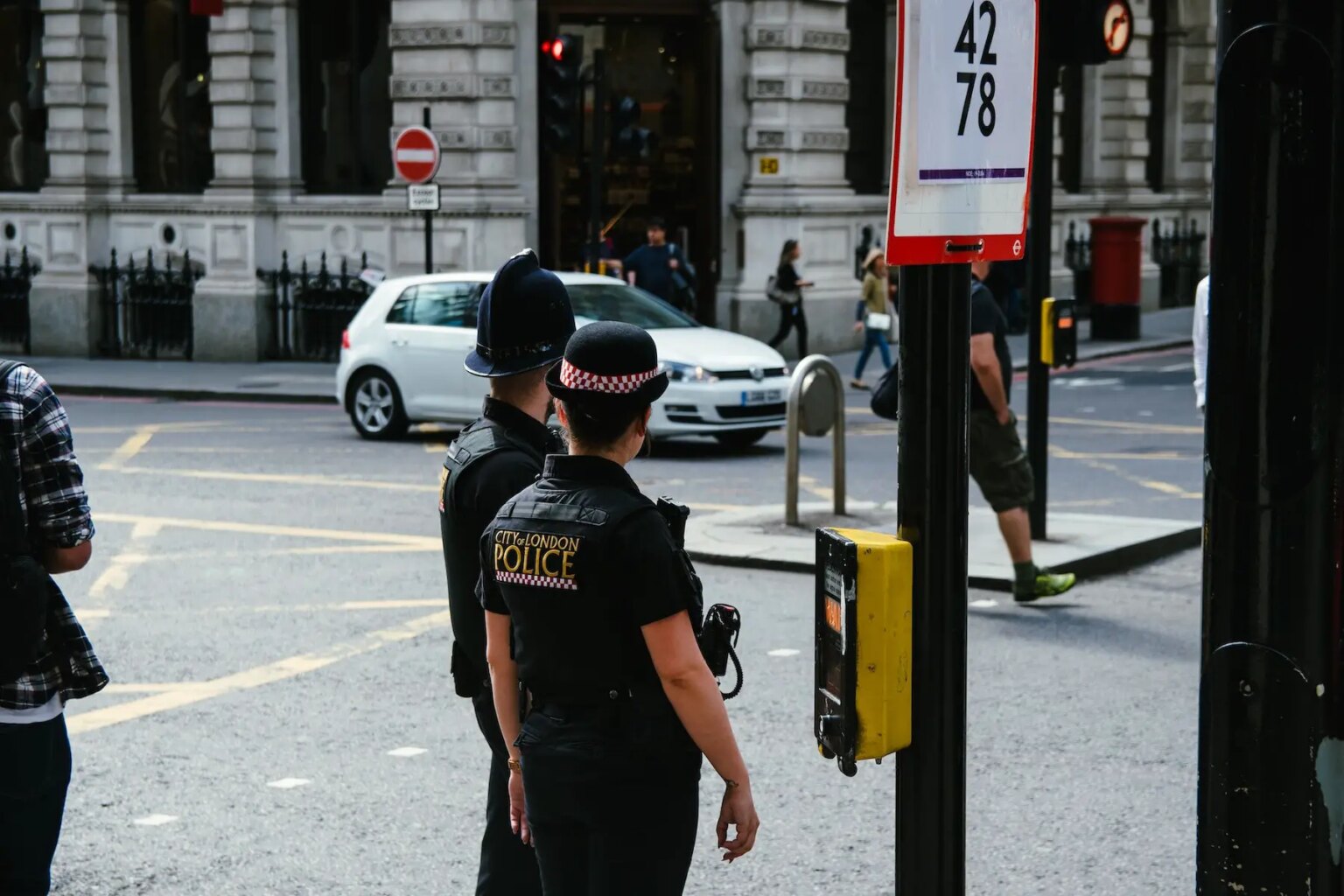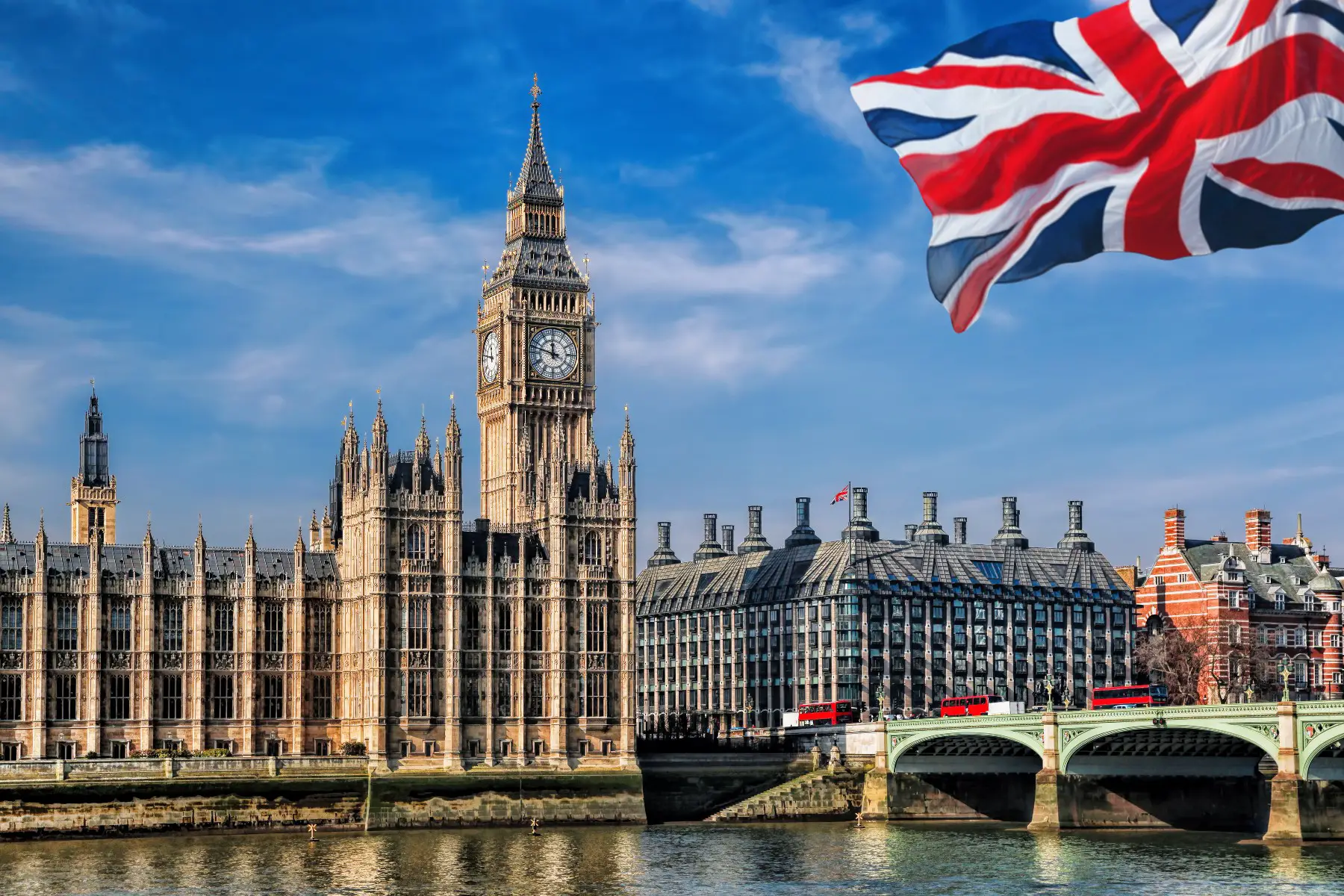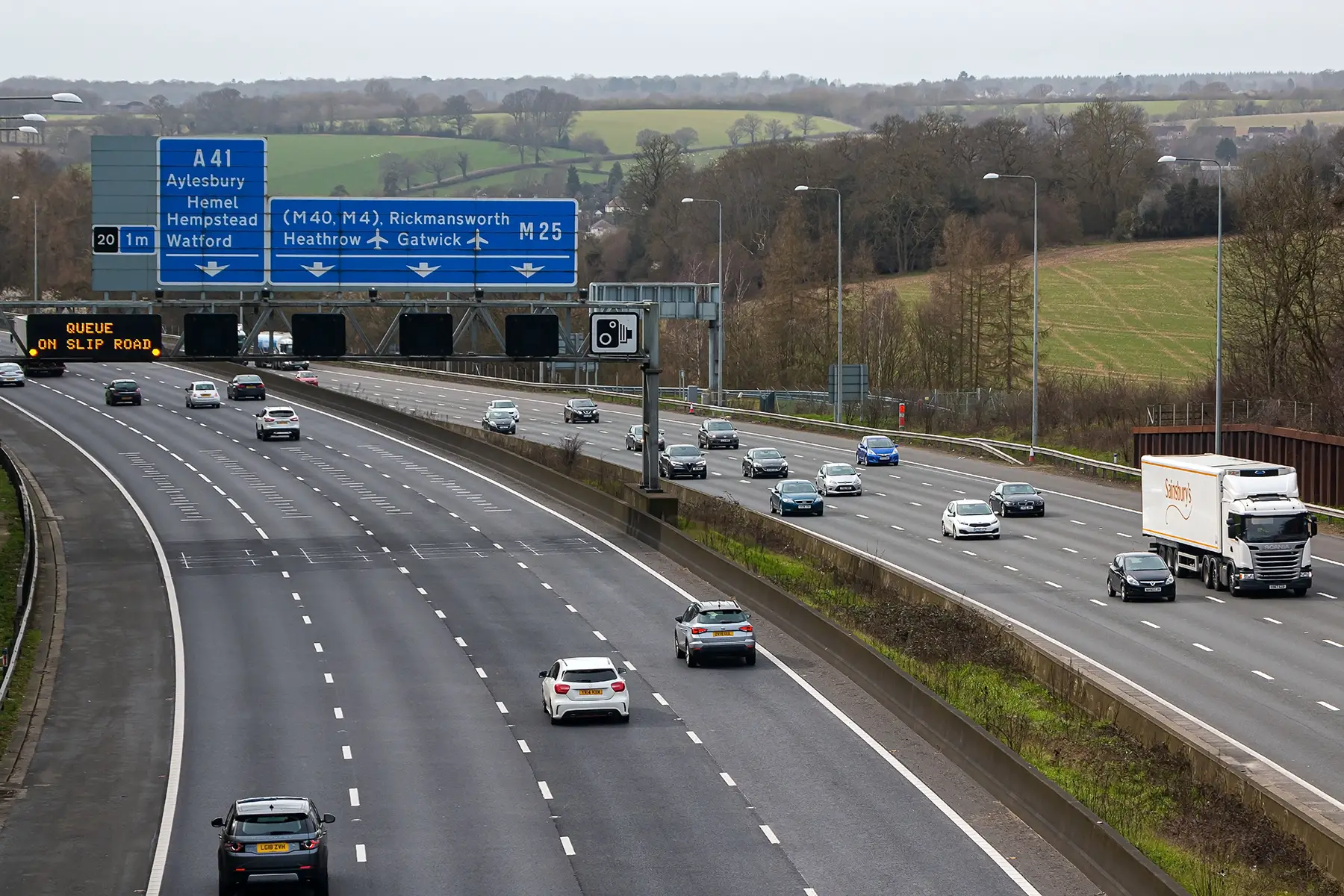If you’re moving to the UK, it’s important to be aware of the laws to avoid possibly making a costly mistake. Good knowledge of the legal system also means you’ll know what to do and what your rights are in case you are somehow involved in a crime.
The issue of crime in the UK is slightly complicated because its political and legal systems vary by region (i.e., England, Wales, Scotland, or Northern Ireland). England is the main focus here, although the separate regions will be discussed as necessary.
Sections include:
- The criminal justice system in the UK
- Crime in the UK
- Protecting yourself against crime
- Reporting a crime in the UK
- The legal system in the UK
- The trial process in the UK
- Punishments in the UK
- Your rights if you are arrested in the UK
- Legal rights for internationals in the UK
- Divorce laws in the UK
- Useful resources
Ground News
Get every side of the story with Ground News, the biggest source for breaking news around the world. This news aggregator lets you compare reporting on the same stories. Use data-driven media bias ratings to uncover political leanings and get the full picture. Stay informed on stories that matter with Ground News.
The criminal justice system in the UK
The UK criminal justice system consists of government departments that work together with several other public agencies to decide on laws and deal with those that commit crimes. Two main government departments work in the area of criminal justice:
- Ministry of Justice (MoJ): the main department that oversees the justice system in the UK, with a current annual budget of £9.15 billion
- Home Office: the department responsible for law and order, including the police service, counter-terrorism, and security issues
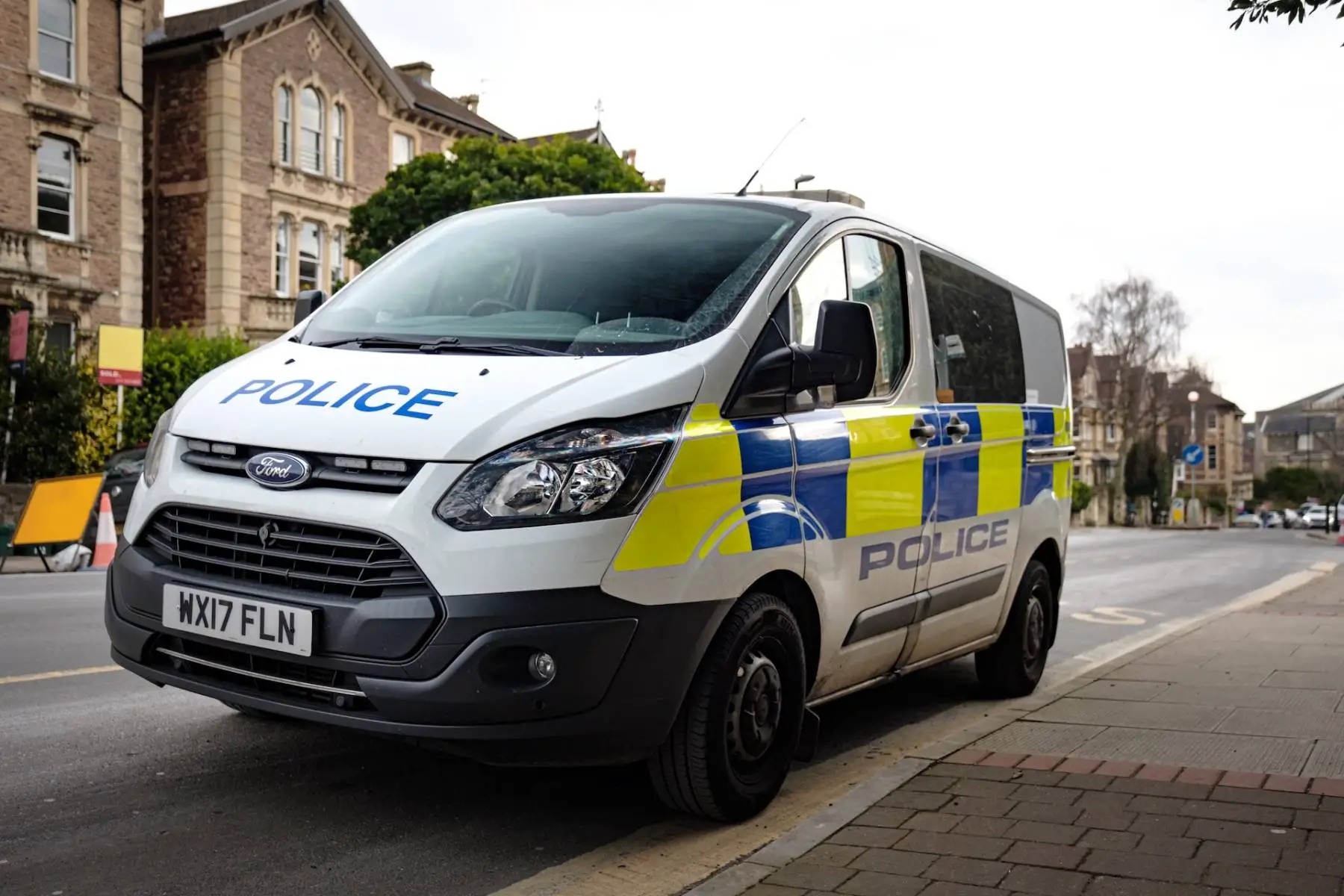
Government departments in the UK work with the following agencies in the area of criminal justice:
- Crown Prosecution Service: the public agency in charge of conducting criminal prosecutions
- Police Service: responsible for policing, law and order, and making arrests
- The Courts (HM Courts and Tribunals Service): consists of criminal, civil, and family courts
- Law Officers: consists of the Attorney General, who is the chief legal advisor to the government, and the Solicitor General, who provides a supporting role
- His Majesty’s Prisons and Probations Service: carries out court sentencing and is responsible for the punishment and rehabilitation of criminals
- National Crime Agency (NCA): responsible for dealing with serious and organized crime, including cross-border crime
Cross-border crime
Although the UK has now left the European Union (EU), the Trade and Partnership Agreement in place since the UK’s withdrawal (Brexit) includes provisions for cooperation with Europol for Europe-wide security. In September 2021, the NCA and Europol signed a new working arrangement. UK crime agencies also work with Interpol to tackle international crime in the UK.
While these departments and agencies are part of the UK central government, most of them apply either mainly or exclusively to England and Wales, while Scotland and Northern Ireland have separate criminal justice systems.
Crime in the UK
According to the European Crime Index, the UK crime rate is the 8th highest in Europe. The Office for National Statistics (ONS), which collects data for England and Wales, reported a 14% overall increase in crime in 2021 compared to 2019. This was largely due to a big increase in fraud and cybercrime, while theft decreased in this period by 18%.
The percentage of total crime by type in 2021 was:
| Type of crime | Percentage |
| Fraud | 41% |
| Theft, burglary, and robbery | 26% |
| Cybercrime and computer misuse | 15% |
| Violent crimes | 15% |
| Vehicle crimes | 2% |
| Homicides | 1% |
Protecting yourself against crime
The UK government works together with the police on crime prevention strategies. The police force has its own Crime Prevention Initiative that has been active for over 20 years, delivering a wide range of programs. In addition to this, the government has implemented a range of measures, the latest being the Beating Crime Plan (2021).
You can take simple steps to try and protect yourself from crime in the UK, such as:
- Keeping doors locked and not leaving any windows wide open at home
- Making sure no valuables are visible in parked cars
- Never leaving belongings unattended
- Avoiding unlit areas if you move around alone at night
- Using strong passwords for all online accounts and not staying logged in on shared devices
- Carrying a personal attack alarm or deterrent
The Metropolitan Police also has online tips on how to keep safe in different scenarios.
Reporting a crime in the UK
If you are a victim of crime
Survivors of crime can report it in several different ways:
- Call 999 if the incident is an emergency. You can ask for the police and, if necessary, an ambulance.
- If it’s a fairly minor crime, for example, property damage or antisocial behavior, you can call 101.
- You can report the crime online.
- You can visit the local police station.
- If you wish to remain anonymous, you can contact CrimeStoppers online or call 0800 555111.
When reporting a crime in the UK as a victim, you won’t need to provide anything apart from information about what happened. The police will normally interview you and take a statement where you should give as much information as you can. You will also get a chance to make a Victim’s Personal Statement, where you can detail how the crime has affected you.
Following this, the police should give you the contact details of the case officer. They should also put you in touch with Victim Support and keep you informed of any developments.
If you have been the victim of a physical assault, you may be able to access additional support. The police may also ask you to undergo a medical examination. This is not compulsory but may provide vital evidence.
If the police catch the suspected offender and the case goes to court, you may be asked to attend the hearing.
Witnessing a crime
The procedure for reporting a crime as a witness is similar to the procedure for a victim.
You can report the crime using any of the same methods that you would as a victim. If you are unsure whether what you witnessed is a crime or not, you can check this list of what you can report to the police. You will be asked to give a witness statement if you report a crime, which the prosecutors may use as evidence if the case goes to court.

Next, the police should give you the contact details of the case officer and keep you informed of any developments. In certain rare cases where witnesses to crime may be in danger, you may be able to receive witness protection. Tell the police if you are worried for your safety after reporting the crime.
The police may contact you if they need any further help or have more questions. If they catch the suspected criminal and the case goes to court, you may be asked to attend the hearing and give evidence as a witness. All victims and witnesses can get support from their local Witness Care Unit during this process.
The legal system in the UK
The UK has three separate legal systems: one for England and Wales, one for Scotland, and one for Northern Ireland. Although courts at the highest level have UK-wide jurisdiction and many modern laws are applicable across the whole nation, there are differences at the regional level. For example, England and Wales have a largely common law system based on judicial precedent and legal statutes. However, Scotland has a mixed system of common law and civil law rooted in Roman Law.
The UK’s legal system consists of three broad areas:
- Criminal law: laws put in place by the state which all citizens have to obey
- Civil law: laws protecting citizens’ personal rights, such as property rights or the right to payment if injured
- Administrative law: laws governing the behavior and activities of public bodies
According to the World Justice Project Rule of Law Index 2021, the UK ranks 16th in the world in terms of fairness of its legal system. It scores 0.79 on a scale of 0 (total unfairness) and 1 (total fairness).
Court system
The court system in the UK is complex and varied. In general, there are three types of court:
- Magistrates’ courts: deal with most civil cases and minor criminal cases
- Senior courts: the Crown Court, High Court, and Court of Appeal, dealing with more serious criminal cases and any cases referred by the magistrates’ courts. The Court of Appeal deals with appeals from other courts.
- Supreme Court: the final court of appeal for all cases
There is also a tribunal system for dealing with the majority of administrative cases and appeals. From there, decisions can escalate to the Court of Appeal.
Police and regional governments
In the UK, policing is the responsibility of regional governments. Scotland and Northern Ireland both have a national police force, while in England and Wales, the Home Office is responsible for 43 territorial police forces. In addition to this, there are three specialist forces: the British Transport Police (BTP), the Civil Nuclear Constabulary (CNC), and the Ministry of Defense Police (MOD).
Each police force has a Chief Constable or Commissioner as its head. There are also elected Police and Crime Commissioners (PCC) in each territory that oversee forces and have the power to hold them accountable. In London, Manchester, and West Yorkshire, the elected Mayor serves as the PCC.
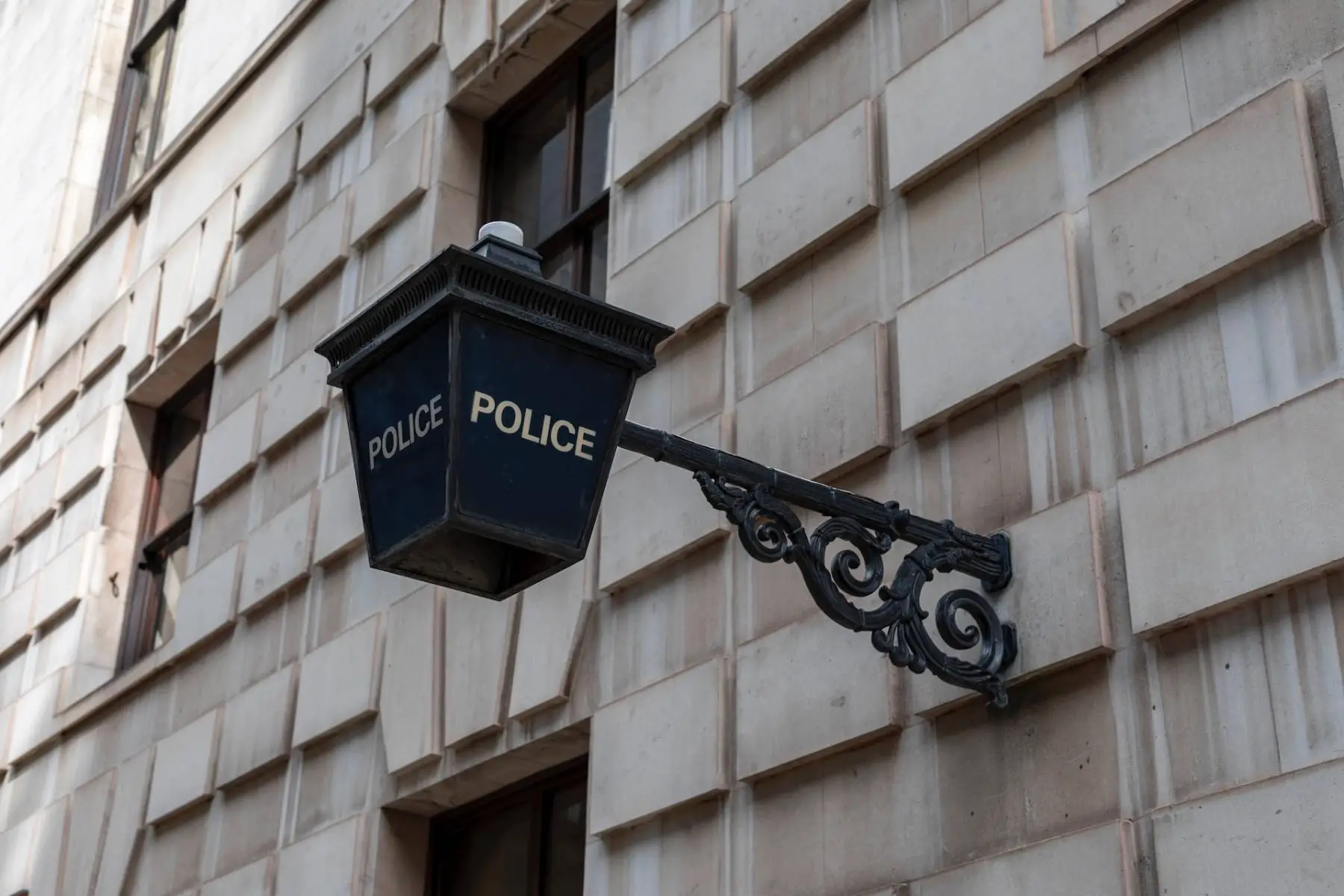
Most police forces in England and Wales also employ police community support officers (PCSO) who don’t have the same power as other officers but do carry out certain functions like issuing fixed penalty notices and seizing alcohol from anyone under 18.
You can search online for your nearest police station.
Prisons
Prisons in England and Wales fall under the responsibility of His Majesty’s Prison Service, part of the Ministry of Justice. Scotland and Northern Ireland have separate prison services. There are public and private prisons, segregated between men, women, and young people, and categorized according to the level of security:
| Gender | Age | Category | Description |
| Male | Adult | A | Highest-risk prisoners and maximum security prisons |
| A–C | All levels of closed prison | ||
| D | Lowest-risk prisoners and open prisons | ||
| Female | Adult | Closed | Highest-risk prisoners and maximum security prisons |
| Open | Lowest-risk prisoners and open prisons | ||
| Young People | 18–21 | Young Offender Institutions (YOI) | |
| up to 17 | Youth custody establishments |
There are various types of prison sentences in the UK, including:
- Suspended sentence: a delayed sentence that is only served if the defendant doesn’t meet certain conditions
- Concurrent and consecutive sentences: for multiple offenses, served at the same time or served one after the other
- Fixed-term sentences: for a set period of time
- Indeterminate sentences: no time limit, will be reviewed after a set period
- Life sentences: usually with a minimum parole period
Although prisons are mainly rehabilitative in the UK, cuts in prison spending since 2010 have led to worsening conditions and higher recidivism rates. The prison population in England and Wales is 167 per 100,000 people. This is higher than the EU average of 104. According to a study in the academic journal Wellcome Open Research, the chance that a prisoner is convicted of another crime within one year of their release is 48% in England and Wales, significantly higher than France (26%) but lower than Sweden (51%).
The trial process in the UK
The trial process depends on the kind of trial and the type of court the defendant is tried in. For Crown Court proceedings, there is normally an initial hearing where the defendant enters their plea of guilty or not guilty. If the defendant pleads guilty, the judge can either immediately impose a punishment or ask for more information before making a decision.
In cases where the defendant pleads not guilty, the judge will set a date for the trial. This can be weeks – or sometimes months – into the future, depending on court availability and case complexity. A jury of 12 people selected randomly from the electoral roll decides trial cases. Both the defense and prosecution build their cases to present in court. Legal representatives from each side question and cross-examine the defendant(s), victim(s), witnesses, and other key persons. They conclude by making final statements in front of the court.

The jury then leaves the courtroom to decide on a verdict, which usually has to be unanimous, meaning all members of the jury must agree. If the jury cannot reach a unanimous verdict, the judge may agree to accept a majority verdict instead. In cases where the jury delivers a verdict of guilty, the judge will issue a punishment. For Crown Court cases, this is usually a prison sentence.
Magistrates’ trials follow a similar process, although there is no jury. The verdict is decided by either a district judge or magistrates advised by justices’ clerks.
Defendants may be jailed on remand if arrested for a serious offense, meaning they must remain in custody until the trial. Otherwise, the police may release them on bail and possibly limit their ability to travel until the trial.
Punishments in the UK
Punishments in the UK can include:
- Prison sentences
- Suspended prison sentences
- Community service orders
- Fines and compensation orders
- Restrictions and penalizations relating to the area of offense, such as driving bans or points on your driver’s license
- Conditional discharge, where you can avoid punishment if terms are met
For lengthy or life sentences in prison, you may be eligible for parole after a certain number of years if you meet the requirements.
If you commit a crime in the UK, this can stay on your criminal record, which is kept by the Disclosure and Barring Service (England and Wales) for up to 100 years. Serious crimes such as murder and sexual assault stay on a criminal record for a person’s lifetime. Most smaller offenses remain on record for up to 11 years.
Capital punishment
The UK abolished the death penalty with the Murder Act of 1965. The last execution in the UK took place in 1964.
Most serious crimes
The most serious offenses in the UK are known as indictable offenses, which can only be dealt with in a crown court and can carry heavy sentences. These include:
| Crime | Sentence |
| Murder | Imprisonment for life |
| Manslaughter | Usually between 2–10 years |
| Rape | Typically between four years and life imprisonment |
| Armed robbery | Between four years and life imprisonment |
| Possession of a firearm | Between six months and 14 years, depending on the intent |
| Terrorism | Between 14–25 years for serious offenses |
Violent crime
In addition to those included among the most serious crimes, other violent crimes include:
| Crime | Sentence |
| Common assault | Maximum sentence of six months imprisonment |
| Actual Bodily Harm (ABH) | Between six months and five years |
| Grievous Bodily Harm (GBH) | Maximum of five years |
| GBH with intent | Can carry a penalty of life imprisonment in the most extreme cases |
| Throwing corrosive fluid with intent to injure or burn | Maximum of life imprisonment |
| Possession of a firearm | Maximum of four years |
Theft/burglary
Minor theft cases are usually heard in Magistrates’ courts and carry sentences ranging from fines to six months in prison. Serious cases of theft determined in a Crown court carry a maximum sentence of seven years. The punishment for burglary, where someone enters a building as a trespasser with the intent to steal property, depends on the severity of the crime.
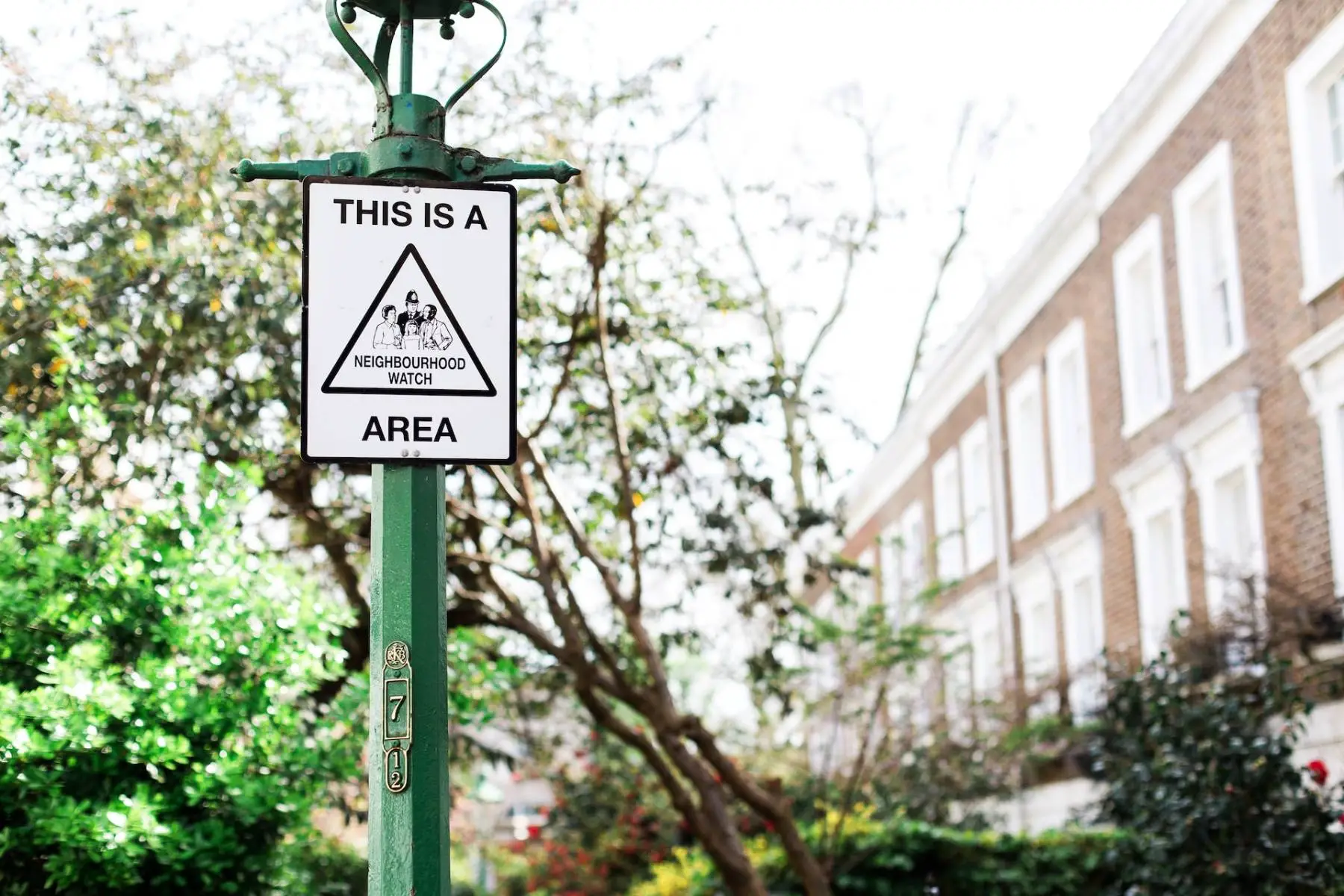
Most punishments are between six months and six years, but high-category offenses can lead to a maximum of 14 years imprisonment.
Terrorism offenses
The UK Terrorism Act 2000 defines terrorism as violent or threatening actions designed to influence governmental organizations and/or intimidate the public to advance a political, religious, racial, or ideological cause. These actions include:
- Serious violence
- Serious damage to property
- Endangering the lives of others
- Creating serious health or public safety risk
- Actions designed to severely disrupt electronic systems
Terrorism crimes in the UK include:
| Crime | Sentence |
| Carrying out or preparing a terrorist attack | Maximum sentence of life imprisonment |
| Collecting information for terrorism purposes | Maximum of 15 years |
| Disseminating terrorism materials | Maximum of 15 years |
| Membership or support of a banned organization | Maximum of 14 years |
| Possession of equipment for terrorist purposes | Maximum of 15 years |
| Encouragement of terrorism | Maximum of 15 years |
| Attending terrorist training | Maximum of 14 years |
Drug and alcohol-related offenses
Controlled substances fall into three categories in the UK, from Class A (most harmful) to Class C (least harmful). Punishment for drug- and alcohol-related offenses in the UK include:
| Crime | Sentence |
| Possession | From a police caution to a maximum of seven years imprisonment for Class A drugs |
| Supply or possession with intent to supply | Maximum of 14 years for Class B/C and maximum of life imprisonment for Class A |
| Importing or producing drugs | Maximum of 14 years for Class B/C and maximum of life imprisonment for Class A |
Many alcohol-related crimes are linked to other categories, for example, violence, theft, or driving offenses. Since being drunk and disorderly is a non-imprisonable offense, it carries the maximum penalty of a fine.
Fraud
Fraud is now the most common crime in England and Wales, with over 5 million fraud offenses every year. The most common crimes include:
| Crime | Sentence |
| Tax evasion | Maximum of seven years imprisonment |
| Money laundering | Maximum of 14 years |
| Online fraud | Maximum of five years, or 10 years in high-value cases |
| Identity theft | Maximum of seven years |
| Banking fraud | Maximum of 10 years |
| Bribery/corruption | Maximum of 10 years |
Driving and traffic offenses
Minor driving violations – for example, driving without a seatbelt or most speeding offenses – are usually punishable by fines and points on the driver’s license.
More serious crimes, such as driving under the influence of drugs or alcohol or while using a hand-held mobile device, can result in a temporary or permanent loss of license.
If you cause an incident that results in death or serious injury, the punishment can be a jail sentence.
Hate crimes or crimes of racial or religious hatred
UK law identifies hate crime as being based on race, religion, disability, sexual orientation, and/or transgender identity. Crimes generally fall into one of three categories:
- Physical assault
- Verbal abuse (or hate speech)
- Incitement to hatred
Hate crime law in the UK is based on the Crime and Disorder Act 1998 (sections 28–33) and the Sentencing Act 2020 (section 66). The maximum penalties for crimes that fall under the category of hate crimes are:
| Crime | Sentence |
| Common assault | Two years |
| GBH or ABH | Seven years |
| Criminal damage | 14 years |
| Causing fear or provoking violence | Six months |
| Intentional harassment, alarm, or distress | Two years |
Immigration-related crimes
The UK government has passed various immigration-related legislation. The earliest is the Immigration Act of 1971, which still affects current law. The most recent legislation, the Nationality and Borders Act 2022, increases the maximum sentence for entering or remaining in the UK unlawfully to four years imprisonment. This was subsequently criticized by the UNHCR for “undermining established international refugee protection rules and practices.”
Maximum punishments for other immigration-related crimes in the UK include:
| Crime | Sentence |
| Failing to comply with temporary admission conditions | Six months imprisonment |
| Using deception to enter or stay in the UK | Two years |
| Facilitating the illegal arrival of someone to the UK | 14 years |
| Failing to provide the required information or documentation or giving false information to immigration officers | Six months |
| Employing anyone without the right to work in the UK | Five years |
| Human trafficking | 14 years |
| Assaulting an immigration officer | One year |
| Possession of false identity documents | 10 years |
Crimes of anti-social behavior
CrimeStoppers defines anti-social behavior as “a range of behaviours that can cause nuisance and annoyance, or harm and distress to a person.” You can find a list of the activities most commonly considered anti-social behavior on their website.
Most anti-social behavior carries a community order punishment, such as a civil injunction or a Criminal Behavior Order (CBO). This may require you to stay away from certain areas, attend behavior improvement workshops, and repair any damage caused.
These orders can last indefinitely and are reviewed periodically. If you don’t adhere to the terms, you can end up with a prison sentence of up to five years and/or a fine.
Your rights if you are arrested in the UK
If the police arrest you in the UK, you have rights while in custody and the police are required to follow certain codes of practice.

Your rights include the following:
- Legal representation: You can ask for a lawyer when the police arrest you, they cannot question you until your lawyer arrives
- Free legal representation: If you cannot afford to pay, you can obtain a lawyer through the Legal Aid service
- Medical attention: If you are feeling unwell, you can request healthcare (e.g., to see a doctor or go to the hospital)
- Remain silent: The police should explain your right to remain silent (i.e., anything you say or omit may harm your defense later in court)
- Contact someone: The right to tell someone where you are
- Transparency: You have the right to see a copy of the police codes of practice
Once the police arrest you, they can keep you in custody for up to 24 hours. This extends to a maximum of 96 hours for serious offenses and 14 days for acts of terrorism.
If you feel that the police treat you unfairly while in custody or during the arrest procedure, you can complain directly to the police force that handled your arrest or to the Independent Office for Police Conduct (IOPC).
Legal rights for internationals in the UK
Foreign residents in the UK have the same general rights as citizens, including the right to fair treatment and legal representation. However, anyone who is not a British citizen or permanent resident is at risk of deportation if they are convicted of a criminal offense.
According to the Immigration Act 1971, authorities can deport you by recommendation of the criminal courts or the Home Secretary. Furthermore, the UK Borders Act 2007 states that foreign nationals can be subject to deportation without prior recommendation if they receive a prison sentence of 12 months or more.
Extradition treaties
The UK has extradition arrangements in place with all EU countries as part of the Brexit Withdrawal Agreement. EU countries are Category 1 territories that can secure the extradition of a suspected criminal through an arrest warrant and an extradition hearing.
In addition, the UK has extradition arrangements in place with 116 Category 2 territories, including Iceland, Liechtenstein, Norway, and Switzerland. These are split into 35 Type-A countries that don’t have to provide prima facie evidence to support their request and 81 Type-B countries that do. Prima facie is a legal term meaning the evidence is sufficient to establish the fact unless questioned or proved otherwise.
Divorce laws in the UK
You can get a divorce in the UK if you have been legally married for at least one year. Generally, the process takes around six months and you can apply for a divorce jointly or on your own.
Currently, divorce fees in the UK are £593. You can apply online and will need a copy of your marriage certificate.
Useful resources
- Ministry of Justice (MoJ) – the government department that oversees the UK criminal justice system
- Home Office – the government department responsible for law and order, security, and police in the UK
- Crown Prosecution Service – the public agency in charge of conducting criminal prosecutions
- Police.uk – national website for policing in England, Wales, and Northern Ireland
- Police Scotland – website for policing in Scotland
